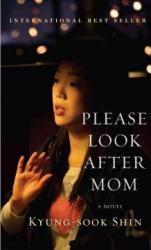
The word mom means unconditional love. When I saw the title it seems a little awkward. The mom who had taken care of her family an given endless love was missing; the elderly woman, suffering from dementia vanished in the crowd in the train station. She came to Seoul to celebrate her birthday withmher children. After her disappearance, the story started with a view from each family members. Each of them followed her trace to find her from their memories. While they struggling to find her, they gradually realized that the mom was ignored and had been neglected, whether intentionally or unintentionally. Her name was Park, So-nye; like meaning (So-nye = little
girl) of her name. She was an ordinary girl like all of us who had many dreams for her future. As time passes by her name and her dreams were sacrificed for her to take the role of a mother without her children's knowledge. Through this book, we encounter question and explore true, universal meaning of family.
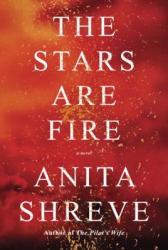
The largest fire in Maine's history is the catalyst of change for Grace Holland, who is left while five months pregnant with her two toddlers as volunteers, including her husband Gene, battle the 1947 blaze. They survive, even if their town does not. But their lives are forever changed. The 24-year-old awaits news of her husband's fate, while homeless, penniless and facing an uncertain future. Grace embraces her new freedom after years of a "sense of something wrong" and strives out on her own to support herself, raise her family and yes, find love. But then her husband returns, a scarred, bitter man. The tense pacing of the fire scenes are well done. But it is the story of a young woman discovering her inner strength while facing oppressive social mores that resonates in this final romantic novel by the author of The Pilot's Wife and The Weight of Water.
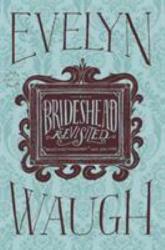
This is the book to read when you're up for lofty prose fiction that's readable, sophisticated, and becomes gradually more and more that of a delightful meandering upon a grandeur of intricate reminiscence, which, though, it may seem a meandering at first, reveals itself soon to be very much otherwise, instead, the exact opposite—this author never wanders, never guesses, but totally knows where he's expertly taking you—Evelyn Waugh, I realized, was truly a master, he absolutely wins the contest for your literary respect, telling, not a delightful, but a painful story remembered in part from the initial mobilizing of the second world war back to the 1920s, with a thoroughly nostalgic march forward in time from then, a growing up story in an exceedingly high society, I mean, not just aristocratic, like you'd expect in a novel written in the kind of British high style of Brideshead Revisited, but cream of the crop top, the tiptop aristo-of the-cratic. Waugh's writing is proportionately as great as this reviewer's is stilted. This book deserves your time. I put off reading it for a long time. I thought it might be impenetrable. I wonder what's like to listen to?
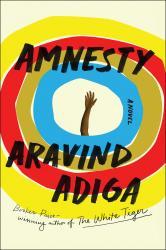
Danny is an undocumented immigrant from Sri Lanka living in Australia. As he's undocumented, he works as a cleaner and gets paid under the table. One day, he is contacted by the police as one of his clients had been murdered. Danny realizes that he likely knows who the murderer is, but has to decide whether or not to share that information with the police. If he does talk to the police, his undocumented status will likely be discovered and he would likely be deported.
This book spans one day in Danny's life, but flashes back to show you how and why he ended up as an undocumented person in Australia. And wow, that's a hard, scary life. The book both calls attention to the unfair, and frankly quite Draconian, immigration policies of Australia and presents a really interesting ethical dilemma. The central question of the book is kind of "what do we owe to each other"? Does Danny have a responsibility to turn in the murderer, even if it means his own life will be irreparably changed for the worse? Danny grapples with this question for much of the book, and it's a really interesting thought experiment. Really, my only complaint is that the last third or so of the book is really repetitive; I found the first two thirds to be fairly riveting.
Folks who are interested in ethics or who are interested in the hardships of the immigrant experience should definitely pick this book up. 3.5 stars. I really liked the first 2/3.
Thanks to Scribner and Netgalley for the eARC which I received in exchance for an unbiased review. Amnesty is available now.
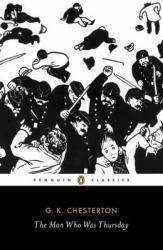
On the surface, The Man Who Was Thursday has all the markings of a witty thriller satire. Unfortunately, as the subtitle of this work is “A Nightmare,” things don’t necessarily stay coherent to the end. It’s not that The Man Who Was Thursday is terrible, but rather that it loses focus and becomes absurd the longer it continues. And perhaps that’s the greatest tragedy of this book: that it could have been a solid story if it didn’t devolve into a nightmare at the end.
I certainly liked plenty of aspects of the early parts of this book. Infiltrating an anarchist society with day-of-the-week codenames. The revelation that few members of said society were actually who they said they were. The conspiracy and twists as the protagonists and antagonists get flipped on their heads. Of course, this last bit is when things started going downhill. Perhaps it’s that odd British humor that influenced the weird bits, but the story probably could have done without all the randomness near the end. In fact, making the whole thing into a nightmare lessens the overall impact of the story, since there is doubt that any of it happened at all.
I’m sure that books like The Man Who Was Thursday require extensive footnotes and analysis to understand. I’m sure this book is assigned to English classes as an example of deep and thoughtful prose. The problem is that I’m mainly reading for entertainment. I don’t have the time to sit down and pore over all the analysis of a book like this. For my money, I think I’ll stick to the James Bond series for spies with code names infiltrating secret societies. At least then, I know the result is closer to reality than whatever this book contains.
A weird book that could have been an excellent thriller satire, I give The Man Who Was Thursday 3.0 stars out of 5.
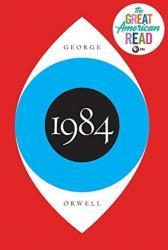
1984 introduces Winston Smith as the primary character. Smith is a middle-aged man that lives within a dystopian society in April of 1984. Being nearly 4 decades after World War II and just a couple of years after the apparent Atomic Wars, Smith lives through the totalitarian state of Oceania, where is activity is consistently surveyed. At this point, Smith attempts to relocate himself from this totalitarian state in order to put him back to normal behavior.
1984 is another novel involving a dystopia, however, it stands out for its strong character development. The premise of the story is heavily shown through the setting, as it demonstrates a controlled and tyrannical lifestyle.
Reviewer Grade: 11
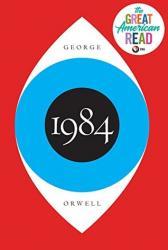
George Orwell depicts a horrific and terrifying alternate reality of 1984.
After years of war and conflict, the world is governed by three totalitarian regimes. The one that our main character, Winston Smith, resides under is ruled by the “party” and its leader “Big Brother”. The narrative follows Winston as he meets a mysterious woman named Julia, and the two begin to secretly rebel.
When I first started reading this book, I was a little bit disappointed. I had such high expectations (I think that was the problem) ,and it just didn’t live up to them. In the beginning, I thought Winston’s character was somewhat flat, and I didn’t feel a lot of sympathy for what he was living through. I thought Julia was unrealistic and a bit obnoxious. But in the second half of the book, my opinions had changed. The book becomes quite disturbing, and it makes you question what is actually real and what is just a fabrication of the party. It’s terrifying to say the least. Despite the fact that I enjoyed parts of this book, I have to rate it 3 stars because I wasn’t engaged in the first half of the narrative.
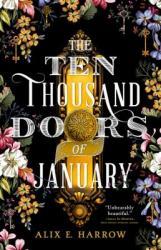
This beautiful work of art, is a love letter to stories and bibliophile’s everywhere. I loved Harrow’s intoxicating magical debut so much that I blew through it in 4 days! I read it back in March but it still sticks with me to this day! But I have to admit, I have been a hard time finding words to describe this magical beautiful experience of a book because it grabbed my heart so completely and did so much to me, that to try to express it in words and to remember all the intricate details has been difficult. But I am happy to report I am currently doing a re reading and so far it is just as magical, heartbreakingly tender and beautiful as the first time. I am so excited that it has finally come out and more people get to experience this epic journey into unknown worlds. This should be on everyone’s reading lists!
Meet January Scaller, a brown girl, an in between sort of thing some call her, growing up in the 1900’s a time rife with social change, and colonialism. A difficult time where the world is in transition and nothing is at it seems. January is the ward of a wealthy white benefactor, Mr. Locke, who spends his waking moments hunting for the worlds artifacts and then selling them to the highest bidder. Or more truthfully, employing people like January’s father to hunt down these treasures, so he can sell them. As a result, his sprawling estate resembles a museum decorated with treasures and all sort of odd things from around the world. Being taught to always be the good girl, she is tollerated in Mr Locke’s society but still she feels like a artifact herself.
With her father gone for months at a time and Mr. Locke attending to meetings, January grows up alone, content with wandering the lonely grounds and halls to be among it’s treasures and discover its secrets. One day when she was 7, playing amidst the wide open fields of the estate, she discovered a door, a blue ragedy door that hadn’t looked like it had been used in ages, and she wished for it to lead to elsewhere, using a old diary she had found. Next thing she new, she was stepping from the familiar into a new world unknown. When she was was older, in the same place she found the diary, she discovered a mysterious book that spoke of secret doors, other worlds, and adventure. As the pages keep turning January discovers connections and truths to her own story, that she never would have imagined and is led into a adventure of a lifetime.
Full of beautiful imagery and entrancing atmospheric prose, this story exhibits the best things I love about books and fantasy in general. Prose that flower off the page and into the reader’s imagination, a coming of age tale, a magic system based in words and stories, other lands, a wild, beautiful, strong heroine who has trouble fitting in and conforming to standards, dastardly villains, sweet friendships, and a heart of love and family at it’s center.
Stories have a way of communicating deeper truths that can’t be understood and communicated in any other way. And their is so much in this book! A imaginative tender hearted lonely adventuresome girl full of all the desires that young girls have, the yearning to be loved both romantically and by a father, and the desire to be part of a grand adventure in unknown new exciting places. This story communicates hope for better things and the understanding that their is something more. It communicates love and the need for family and belonging, it communicates the importance of discovering identity and sticking to your truths no matter what. And it communicates so many other truths that are at once both universal but at the same time, personal as stories speak to each of us differently and discovering what they say, is part of the adventure.
And everyone should go on this adventure! Everyone should read this intricate, tender hearted, complex, magical, tale that will sweep your heart between it’s pages and not let it go, even after the last page is turned.
Thank you to Orbit publisher for my ARC of this wonderful tale for review!
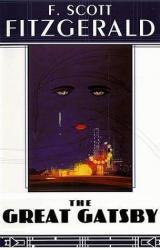
The Great Gatsby is truly a masterpiece. The Great Gatsby tells the story of Nick and his mysterious neighbor Gatsby. Gatsby is very wealthy and throws grand parties, yet has a mysterious and possibly immoral past.
Fitzgerald is a master of imagery, character development, and mystery. Set during the Jazz Age, The Great Gatsby is a fascinating commentary on life in America. I understand why The Great Gatsby is a classic and many students are required to read it. The Great Gatsby is a wonderful book that any reader from high school to adults can enjoy and learn something from.
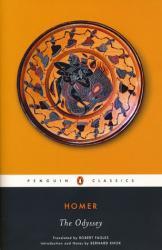
The Odyssey is an epic poem written by Homer, and it is a literary classic about two great quests. Ten years after the fall of Troy, Odysseus still hasn't returned home to Ithaca, and his house is plagued with suitors wanting to marry his wife, Penelope. His son, Telemachus, feels overwhelmed but is sure that Odysseus isn't dead. With the help of the goddess Athena, he sets off to search for his father as the reader learns more about Odysseus's previous journey and resulting enslavement. Telemachus encounters many obstacles which shape him and build his confidence by the end of the story.
Although this book is a classic and was probably very popular in ancient Greece, it is not an enjoyable book to read. There is too much unnecessary dialogue, and the plot is excessively long. Due to the old language and lengthy descriptions, reading The Odyssey is a very strenuous task.
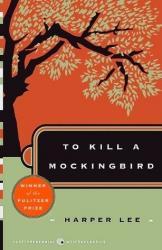
This is a story that beautifully represents society in a way few novels can. Set in Maycomb, Alabama in the early 1930's, it is told from the perspective of a 6-year-old girl, Scout, as she grows, plays, and gets into trouble with her older brother, Jem, and comedic friend, Dill. Scout's wise father, Atticus, must defend an innocent black man accused of rape; along the way Scout meets people and learns things that impact her life. Meanwhile, Scout, Jem, and Dill, are determined to learn more about their mysterious neighbor and the violent rumors that surround him--sometimes getting themselves into humorous situations--and learn something surprising. The book is spectacularly and wisely written, with characters readers will connect with, and themes that are important in all readers' lives: courage, empathy, and the power of standing up for what you believe in. Scout's sense of humor and insightful observations will make readers think and keep turning the pages for more.
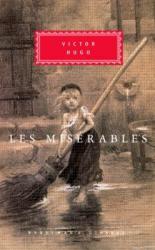
One of the most profound pieces of literature ever crafted, simply due to the fact that the main character is a metaphor for Jesus Christ. This masterpiece of prose has been well documented, however, it relates human tragedy and a profound love as only Mr. Hugo himself could have imagined the reader could absorbed. Cosette is a wonderful character as well as lil' Gavroche and he introduces unknown things to an American audience if they ever read books anymore.;)
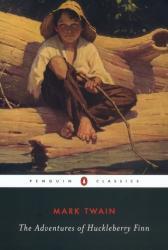
A classic piece of literature, The Adventures of Huckleberry Finn by Mark Twain is a wonderful depiction of life along the Mississippi river and times past. Huckleberry Finn is a wild, adventurous, and self-sufficient young man who finds his way along the river with an escaped slave. Stealing, superstitions, and deception all describe the journey Huck Finn and Jim take together. They encounter rivaling families, con artists, and Tom Sawyer in their attempt to get north. Mark Twain paints a vivid picture of life in the South with slavery in a way that shows that not everyone believed the same thing. A truly fun and interesting story, The Adventures of Huckleberry Finn is a book that will interest even the most disinterested reader.

A young woman dealing with grief pours out her emotions in a long emotional letter to her friend who commit suicide. I didn't quite like this book due to the long bland feel of the story. We hear her stories through her thoughts, where she rambles on about rather uninteresting things, like mice, a cat, etc. This emotional woman tends to ramble on and on about the slightest details which can make some parts feel long and drawn out. Overall, I didn't like the depressive, bland and boring mood of the story. Reviewer Grade: 7
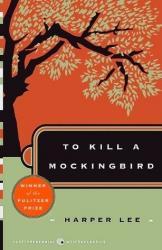
To Kill a Mockingbird is truly a masterpiece of American literature.
Along the lines of Tom Sawyer and Huckleberry Finn, Harper Lee presents us with a coming of age story set in 1930s Alabama. Scout and Jem Finch explore their hometown, get into trouble, wonder about the mystery of Boo Radley, and are faced with a great challenge when their father must prove a man to be innocent. Atticus Finch, Scout and Jem's father, is a wholehearted, unprejudiced role model who always stands up for what is right and who anyone can learn a lesson from. Overall, I understand why many schools require their students to read this book as it is wonderful literature for all generations.
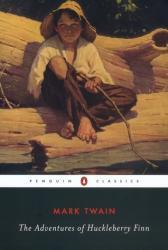
You are slowly floating down river on a warm summer night. You have no worries as you gaze at the endless stars above you. You had a simple day; catching fish to eat and lazily laying in the sun as you float wherever the river takes you. This is the life of Huckleberry Finn.
I gave this book three out of five stars because it was good however it wasn't good enough for me to consider it one of my favorite books. I appreciated the multiple conflicts, the complexity of having several conflicts at once made the book interesting. The characters were all well developed even side characters had underlying intents, and backgrounds.
Additionally, the relationships between the characters was engaging, I especially enjoyed the dynamic between Huck and Jim. Finally, I really enjoyed the internal conflict of Huck as he traveled with a slave. Huck's moral conflict from a society being raised in a society that supports slavery was striking as a 21st century teenager. Despite the positive elements of "The Adventures of Huckleberry Finn" it is only pretty good because I couldn't relate to the characters and the book lacked an emotional connection that would make it one of my favorite books. Regardless, you should read this book for to develop an understanding of the culture of the past.
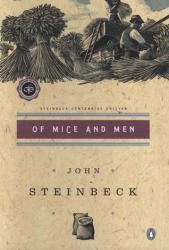
The short novel Of Mice and Men by well-regraded author John Steinbeck is heralded as a classic for a reason. The book tells the story of George and Lennie, two migrant workers trying to make a living farming in California during the 1930s Great Depression. George and Lennie are not related; they are friends who travel together to find work. Throughout the novel, they encounter new relationships and people on a new ranch. There is no denying that Steinbeck was an incredibly strong author, capable of painting a rich portrait of life in such a harrowing time of hardships; however, the sad and frankly unnecessary ending of this novel took away from my liking of it, in addition to the frank descriptions of mistreatment of people and animals, combined with the elongated plot contributed to the fact that this wasn’t a book I enjoyed. Readers need to be aware that this is a very difficult book to read, combined with mistreatment of a character with mental illness, women, and animals. Some may enjoy this novel because of the vivid descriptions and powerful characters, however, in my opinion, this book was horribly sad and not something I would not read again.
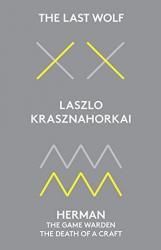
This bundle of stories is an interesting read. It contains three stories about a writer facing an identity crisis, a hunter gone mad, and a final story about the impact of the hunter’s actions. The way this story is written can be often confusing and difficult to understand for casual readers. I personally didn't like this book, due to the bland, depressing, atmosphere of the setting, and the complexity of the sentences. Often times, it is difficult to tell when the narrator is talking or when he is thinking.
Regardless, I still believe it is a fine read for readers with an advanced vocabulary. Reviewer Grade: 7
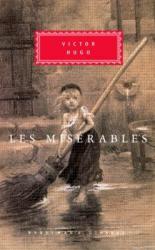
Jean Valjean has been in prison for 19 years. On the day he is freed, he walks to the city of Digne, which is over thirty miles away. Exhausted, he searches for food and shelter, but is rejected at each place he goes to because he was a former convict. Finally he is told to ask the Bishop of Digne for help. The Bishop agrees without hesitation. Valjean wakes up early in the morning and steals the Bishop's silverware. He is caught and brought back to the Bishop, but the Bishop saves Valjean from returning to prison by pretending that the silverware was actually a gift. He even gives Valjean silver candlesticks as well. The Bishop convinces Valjean to turn around his life.
Exceptionally strong character development was a highlight for me. Some themes in this classic are sacrifice for others and unexpected generosity; for example, Valjean has an opportunity to shoot his worst enemy, but instead decides to free him. The plot also weaves the connections between characters magnificently. This book has made me experience emotions more strongly than any other book I've read.
Les Miserables is a relatively long novel; Victor Hugo (the author) is willing to become verbose frequently. I actually enjoyed its details, which made me more immersed in the story. If you don't usually read books with philosophy, it may take a little getting used to. Even if you have already watched the play, the book is still worth considering; there is plenty of extra material in the book that the play skips.
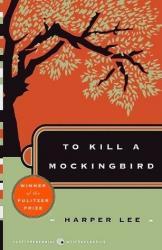
To Kill a Mockingbird, by Harper Lee, is a fantastic novel that examines the racism present in the South during the Great Depression. The book includes several remarkable instances of justice being served to the widespread prejudice present, which captures the reader. All of the character are well developed and serve well in their roles, especially the main protagonist. The entire setting is also intriguing and forms a solid foundation for the plot. Overall, I would recommend this book to anyone as it is a fascinating tale about Southern life.



 We are experiencing recent outages to the online catalog, PPLD mobile app, and Libby/OverDrive. Click here to learn more.
We are experiencing recent outages to the online catalog, PPLD mobile app, and Libby/OverDrive. Click here to learn more.